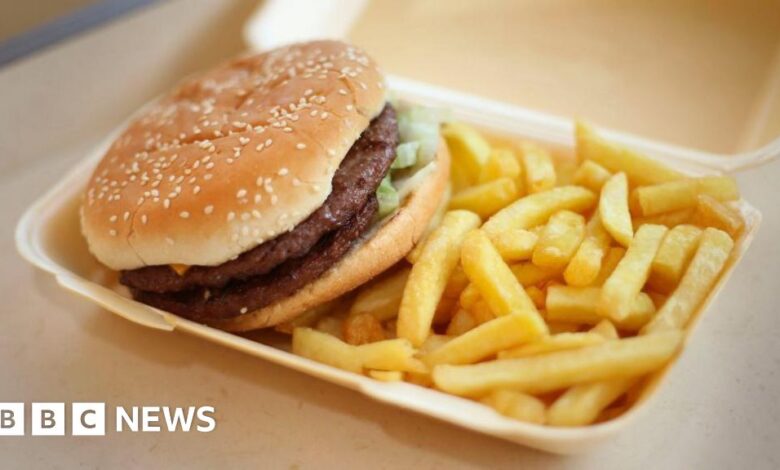TV junk food ads to be banned before 9pm from next year

A ban on junk food adverts being shown on TV before 21:00 will come into force on 1 October 2025, the government has confirmed.
Labour said the watershed on junk food advertising would be enforced alongside a total ban on paid-for online adverts, both aimed at tackling childhood obesity.
The Conservatives had previously committed to the ban in 2021 when Boris Johnson was prime minister, but it was pushed back to give the industry more time to prepare.
Health Minister Andrew Gwynne said confirming the scope of restrictions and the date they would be implemented provided clarity for businesses.
Gwynne said the government wanted “to tackle the problem head on” and “without further delay”.
“These restrictions will help protect children from being exposed to advertising of less healthy food and drinks, which evidence shows influences their dietary preferences from a young age,” he said in his written statement to the Commons on Thursday.
The pre-watershed ban was a pledge in Labour’s manifesto during this year’s general election campaign.
The party also made a manifesto pledge to ban under-16s from buying high-caffeine energy drinks in England, as part of a wider push to improve children’s health.
The Royal Society for Public Health (RSPH), which works to reduce childhood obesity, called the advertising ban a “welcome step”.
Simon Dixon, head of policy and public affairs at the RSPH told the BBC that childhood nutrition is “a long-term priority” that is “key to building a healthier future for the next generation”.
The government has now published its response to a 2022 consultation on draft measures for the ban, confirming definitions for the products, businesses and services covered by the restrictions.
Under the proposals, there is a two-stage approach for defining a product that is considered “less healthy” for the purposes of the restrictions.
This was originally referred to as products “high in fat, salt or sugar (HFSS)”.
In response to the 2022 consultation, the government said it recognised the need for greater clarity on the scope of the restrictions.
It said further guidance will be provided to explain product categories, with clearer examples of which food and drink items fall within each category.
A number of items will be exempt from the new restrictions as they are already subject to separate regulations.
This includes baby formula, processed cereal-based foods for infants, diet replacement products, medicinal drinks and approved meal replacement products.
Gwynne said the government would also hold a four-week targeted consultation to then be able to clarify how restrictions would apply to Internet Protocol Television (IPTV), which delivers TV live over the internet.
It comes as Prime Minister Sir Keir Starmer promised significant reforms for the NHS following the publication of a report by surgeon and former Labour minister Lord Darzi.
Among Sir Keir’s plans is a transition to a digital NHS, moving more care from hospitals to communities and a focus on sickness prevention to alleviate pressure.
“One of these pressures is the childhood obesity crisis, setting up children for an unhealthy life and generating yet greater pressures on the NHS,” Gwynne said.
“More than one in five children in England are overweight or living with obesity by the time they start primary school, and this rises to more than one third by the time they leave.”
Healthy living charity Impact on Urban Health also welcomed the new restrictions, but urged the government to enact similar measures for junk food adverts on the street, public transport and social media.
Its Executive Director Peter Babudu told the BBC that “it is not right that children face a flood of unhealthy options and junk food advertising in the places they spend most of their time”.
The previous government introduced legislation in 2022 to restrict the promotion of unhealthy products in shops, and to ensure healthier food are more easily accessible.
But Mr Babudu pointed to research which suggests this has not been enforced properly, and said that children from low-income families were “disproportionately” exposed to junk food advertising.




